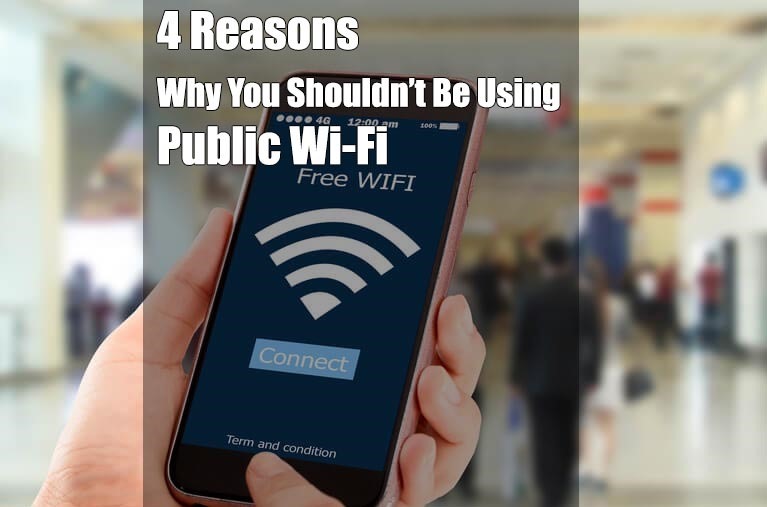
With remote work on the rise, connecting to public Wi-Fi networks has never been more essential. Hopping online while at a cafe, hotel, or airport might seem harmless, but connecting to public Wi-Fi comes with hidden security risks.
In fact, research shows about 40% of people experience cyberattacks while connected to public Wi-Fi. By hacking into these vulnerable networks, cybercriminals can steal personal data, search for passwords, or simply eavesdrop.
So here are four reasons to avoid connecting to public Wi-Fi.
1. Snooping Strangers and Hackers
Unfortunately, the Wi-Fi network at your local coffee shop is not as safe as you might think. When you connect to public Wi-Fi, you’re using the same network as lots of other people.
Among these people may be hackers or simply curious strangers who could take over the network and spy on your activity.
They can do this with a “man-in-the-middle” attack, in which they come between your device and the network. In doing this, the hacker can gain access to your personal data.
If, for whatever reason, you need to connect to the network, try not to access any sensitive accounts, like a bank account.
2. Location-Based Risks: You're Being Watched
Connecting to public Wi-Fi can expose your location via your IP address. Websites use this to figure out information about you and ultimately serve you targeted ads.
That’s why you start getting targeted ads for businesses in your new location when you travel. These websites might also sell your information, meaning your browsing activities are no longer private.
A shocking study shows that one in four travelers has been hacked while using public Wi-Fi. This occurred mostly at airports, bus stations, or train stations.
If you must connect to a public network, employ the following tricks to keep your information safe:
- Disable Location Services: Turn off the location services before connecting to a public network. This limits the data available to trackers.
- Use a VPN with IP Address: Virtual Private Networks (VPNs) with a dedicated IP address mask your location and keep your online activities private.
3. Fake Networks, Real Trouble
Sometimes hackers create fake networks that look legit. They set up these networks near hotels, cafes, or restaurants, making them look like the official Wi-Fi for that business. This is called an “evil twin” network.
This type of attack capitalizes on people's trust in public Wi-Fi and their eagerness to connect without a second thought. So maybe reconsider connecting to "FreeWiFi_ConnectNow” next time you see it pop up in your suggested networks.
4. Unencrypted Connections: No Privacy Zone
Your data is exposed when you use public Wi-Fi. That’s because these networks often skip encryption, the process of encoding information so that hackers can’t access it. In fact, 24.7% of Wi-Fi hotspots in the world don’t use any encryption.
Private information, such as messages or login information, can be intercepted on these unprotected networks. It’s like sending a postcard with all your secrets on it.
So next time you pull out your laptop in a public setting, you should rethink connecting to the Wi-Fi.
From fake networks to snooping strangers, there are real dangers in the digital world. Stay on the safe side!